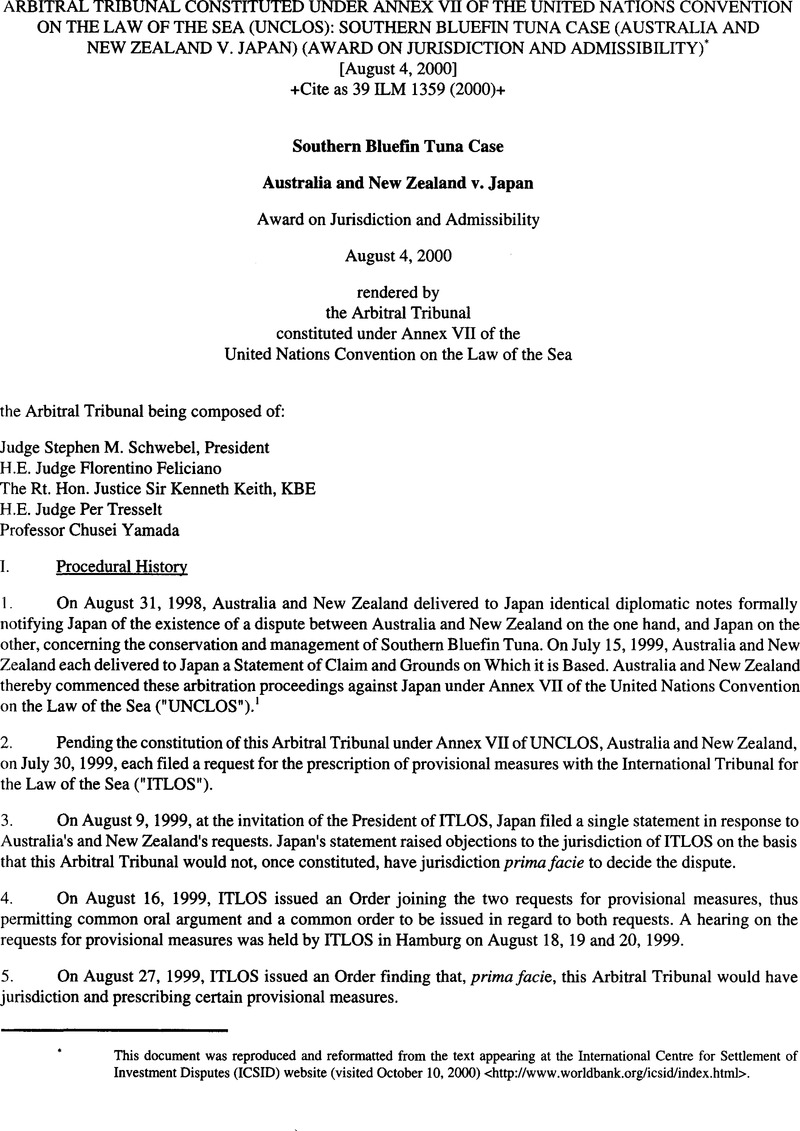Article contents
Arbitral Tribunal Constituted Under Annex VII of the United Nations Convention on the Law of the Sea (UNCLOS): Southern Bluefin Tuna Case (Australia and New Zealand v. Japan) (Award on Jurisdiction and Admissibility)
Published online by Cambridge University Press: 27 February 2017
Abstract

- Type
- Judicial and Similar Proceedings
- Information
- Copyright
- Copyright © 2000
References
* This document was reproduced and reformatted from the text appearing at the International Centre for Settlement of Investment Disputes (ICSID) website (visited October 10, 2000) http://www.worldbank.org/icsid/index.html.
1 “UNCLOS” initially referred to the United Nations Conference on the Law of the Sea, but the term has come to be used to refer to the United Nations Convention on the Law of the Sea, prepared by UNCLOS III, and is so used in this Award.
2 The Parties also agreed at their January 19, 2000 meeting with the President that the language of the proceeding shall be English, and on the distribution between them of the costs of the proceeding and on the remuneration to be offered to the members of the Arbitral Tribunal.
3 All further references herein to ICSID refer to the ICSID Secretariat.
4 Article 311 provides:
1 This Convention shall prevail, as between States Parties, over the Geneva Conventions on the Law of the Sea of 29 April 1958.
2 This Convention shall not alter the rights and obligations of States Parties which arise from other agreements compatible with this Convention and which do not affect the enjoyment by other States Parties of their rights or the performance of their obligations under this Convention.
3 Two or more States Parties may conclude agreements modifying or suspending the operation of provisions of this Convention, applicable solely to the relations between them, provided that such agreements do not relate to a provision derogation from which is incompatible with the effective execution of the object and purpose of this Convention, and provided further that such agreements shall not affect the application of the basic principles embodied herein, and that the provisions of such agreements do not affect the enjoyment by other States Parties of their rights or the performance of their obligations under this Convention.
4 States Parties intending to conclude an agreement referred to in paragraph 3 shall notify the other States Parties through the depositary of this Convention of their intention to conclude the agreement and of the modification or suspension for which it provides.
- 11
- Cited by




